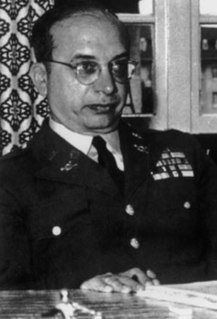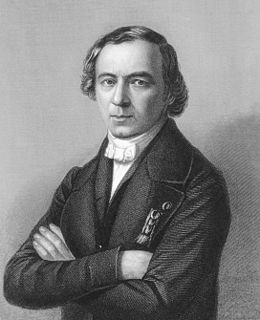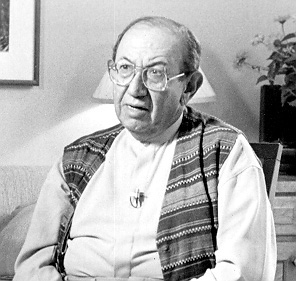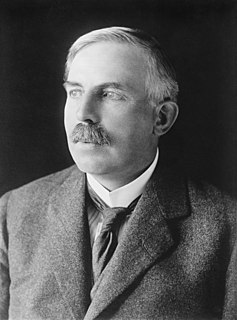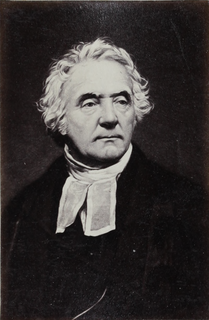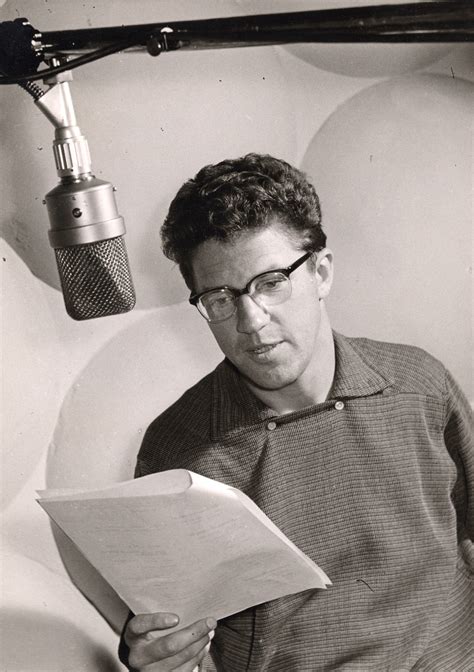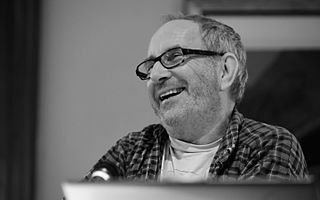Top 250 Particle Quotes & Sayings - Page 4
Explore popular Particle quotes.
Last updated on December 19, 2024.
I cannot cause light; the most I can do is try to put myself in the path of its beam. It is possible, in deep space, to sail on solar wind. Light, be it particle or wave, has force: you can rig a giant sail and go. The secret of seeing is to sail on solar wind. Hone and spread your spirit till you yourself are a sail, whetted, translucent, broadside to the merest puff
I am so in favor of the actual infinite that instead of admitting that Nature abhors it, as is commonly said, I hold that Nature makes frequent use of it everywhere, in order to show more effectively the perfections of its Author. Thus I believe that there is no part of matter which is not - I do not say divisible - but actually divisible; and consequently the least particle ought to be considered as a world full of an infinity of different creatures.
Each atom is trying to fly off from its centre. In the internal world, each thought is trying to go beyond control. Again each particle in the external world is checked by another force, the centripetal, and drawn towards the centre. Similarly in the thought - world the controlling power is checking all these outgoing desires.
Life is movement. Movement is change. Every time a sub molecular particle swings through time and space, something is changing. Change, therefore, is inevitable. It is the nature of life itself. The trick in life is not to try to avoid change, but to create change. Then it is the kind of change you choose.
Every book is an image of solitude. It is a tangible object that one can pick up, put down, open, and close, and its words represent many months if not many years, of one man’s solitude, so that with each word one reads in a book one might say to himself that he is confronting a particle of that solitude
My colleagues in elementary particle theory in many lands [and I] are driven by the usual insatiable curiosity of the scientist, and our work is a delightful game. I am frequently astonished that it so often results in correct predictions of experimental results. How can it be that writing down a few simple and elegant formulae, like short poems governed by strict rules such as those of the sonnet or the waka, can predict universal regularities of Nature?
Reality is what kicks back when you kick it. This is just what physicists do with their particle accelerators. We kick reality and feel it kick back. From the intensity and duration of thousands of those kicks over many years, we have formed a coherent theory of matter and forces, called the standard model, that currently agrees with all observations.
Which is to say that culture is not a reflex of political economy, but
that society is now a reflex of key shifts in music theory and practice....
[Sampladelia is] the sound made by those early-twentieth-century discoveries
in particle physics and relativiity theory, the projection of the minds of
Einstein, Heisenbery, and Bohr, their fateful explorations of liquid time,
curving space, uncertainty fields and relativity theorems, into densely
configured and fully ambivalent android music tracks
Let there be no doubt. Alien technology harvested from the infamous saucer crash in Roswell, N.Mex., in July 1947 led directly to the development of the integrated circuit chip, laser and fiber optic technologies, Particle beams, Electromagnetic propulsion systems, Depleted uranium projectiles, Stealth capabilities, and many others! How do I know? I was in charge! A matter of public record I think the kids on this planet are wise to the truth, and I think we ought to give it to them. I think they deserve it.
It's becoming clear that in a sense the cosmos provides the only laboratory where sufficiently extreme conditions are ever achieved to test new ideas on particle physics. The energies in the Big Bang were far higher than we can ever achieve on Earth. So by looking at evidence for the Big Bang, and by studying things like neutron stars, we are in effect learning something about fundamental physics.
It is a fascinating fact that father and son have given the most striking evidence for the apparently contradictory properties of the electron: the father proving its character as a particle, the son its character as a wave... Thomson was extremely proud of his son's success and tried to assimilate the new results into his old convictions.
When I began my physical studies [in Munich in 1874] and sought advice from my venerable teacher Philipp von Jolly...he portrayed to me physics as a highly developed, almost fully matured science...Possibly in one or another nook there would perhaps be a dust particle or a small bubble to be examined and classified, but the system as a whole stood there fairly secured, and theoretical physics approached visibly that degree of perfection which, for example, geometry has had already for centuries.
[He] understood the people in a new way...The people is not everyone who speaks our language, nor yet the elect marked by the fiery stamp of genius. Not by birth, not by the work of one's hands, not by the wings of education is one elected into the people. But by one's inner self. Everyone forges his inner self year after year. One must try to temper, to cut, to polish one's soul so as to become a human being. And thereby become a tiny particle of one's own people.
One is constantly reminded of the infinite lavishness and fertility of Nature-inexhaustible abundance amid what seems enormous waste. And yet when we look into any of her operations that lie within reach of our minds, we learn that no particle of her material is wasted or worn out. It is eternally flowing from use to use, beauty to yet higher beauty; and we soon cease to lament waste and death, and rather rejoice and exult in the imperishable, unspendable wealth of the universe.
God knows where every particle of the handful of dust has gone; he has marked in his book the wandering of every one of its atoms. He hath death so open before His view, that He can bring all these together, bone to bone, and clothe them with the very flesh that robed them in the days of yore, and make them live again.
Even those to whom Providence has allotted greater strength of understanding, can expect only to improve a single science. In every other part of learning, they must be content to follow opinions, which they are not able to examine; and, even in that which they claim as peculiarly their own, can seldom add more than some small particle of knowledge, to the hereditary stock devolved to them from ancient times, the collective labour of a thousand intellects.
This is crossing the Rubicon, after which there will be no more sovereign states in Europe with fully-fledged governments and parliaments which represent legitimate interests of their citizens, but only one State will remain. Basic things will be decided by a remote 'federal government' in Brussels and, for example, Czech citizens will be only a tiny particle whose voice and influence will be almost zero. ... We are against a European superstate.
The chemical compounds are comparable to a system of planets in that the atoms are held together by chemical affinity. They may be more or less numerous, simple or complex in composition, and in the constitution of the materials, they play the same role as Mars and Venus do in our planetary system, or the compound members such as our earth with its moon, or Jupiter with its satellites... If in such a system a particle is replaced by one of different character, the equilibrium can persist, and then the new compound will exhibit properties similar to those shown by the original substance.
Although we know nothing of what an atom is, yet we cannot resist forming some idea of a small particle, which represents it to the mind ... there is an immensity of facts which justify us in believing that the atoms of matter are in some way endowed or associated with electrical powers, to which they owe their most striking qualities, and amongst them their mutual chemical affinity.
No one can flatter himself that he is immune to the spirit of his own epoch, or even that he possesses a full understanding of it. Irrespective of our conscious convictions, each one of us, without exception, being a particle of the general mass, is somewhere attached to, colored by, or even undermined by the spirit which goes through the mass. Freedom stretches only as far as the limits of our consciousness.
Physics has entered a remarkable era. Ideas that were once the realm of science fiction are now entering our theoretical ? and maybe even experimental ? grasp. Brand-new theoretical discoveries about extra dimensions have irreversibly changed how particle physicists, astrophysicists, and cosmologists now think about the world. The sheer number and pace of discoveries tells us that we've most likely only scratched the surface of the wondrous possibilities that lie in store. Ideas have taken on a life of their own.
What can you do if you are thirty and, turning the corner of your own street, you are overcome, suddenly, by a feeling of bliss - absolute bliss - as though you'd suddenly swallowed a bright piece of that late afternoon sun and it burned in your bosom, sending out a little shower of sparks into every particle into every finger and toe?
What The Source becomes, in a physical sense, is almost like this particle accelerator. There's all these different, discrete voices and ideas. If you just saw two of them together perhaps it might seem completely diverse and like, "Why do you have these two people together?" But as it grows and as it speeds up, it kind of creates a larger dialogue.
Don't bend; don't water it down; don't try to make it logical; don't edit your own soul according to the fashion. Rather, follow your most intense obsessions mercilessly. Only if you do that can you hope to make the reader feel every particle of what you, the writer, have known and feel compelled to share."---Forward to Kafka's Short stories
Consider how badly-built suburbia is. Many business buildings are not designed to outlast their tax depreciation periods, and the McHouses are made of particle board, vinyl siding, and stapled-on trim. A lot of suburbia will simply become the slums of the future. Most of the rest will be salvage or ruins.
My presence isn't simply about "character" - I'm present in every part and particle of the thing, in the sound and rhythm of the sentences, in the shifting tones and the selection of details, in the comedy, the sadness, and the confusion. For the space of an essay, I'm the air you breathe, everywhere and nowhere. With a personal essay, I don't think you'd want it any other way. You ought to have the sense of an encounter, the impression of having met someone. In my essays, for better or worse, that someone is me.
At the head of all these laws, in and through every particle of matter and force, stands One through whose command the wind blows, the fire burns, the clouds rain, and death stalks upon the earth. And what is His nature? He is everywhere the pure and formless One, the Almighty and the All Merciful. Thou art our Father. Thou art our beloved Friend.
The body and mind are continually changing, and are, in fact, only names of series of changeful phenomena, like rivers whose waters are in a constant state of flux, yet presenting the appearance of unbroken streams. Every particle in this body is continually changing; no one has the same body for many minutes together, and yet we think of it as the same body.
In spite of the fact that religion looks backward to revealed truth while science looks forward to new vistas and discoveries, both activities produce a sense of awe and a curious mixture of humility and arrogance in their practitioners. All great scientists are inspired by the subtlety and beauty of the natural world that they are seeking to understand. Each new subatomic particle, every unexpected object, produces delight and wonderment. In constructing their theories, physicists are frequently guided by arcane concepts of elegance in the belief that the universe is intrinsically beautiful.
As you deal with thumb-crossings, or fingerings for the F-sharp-minor scale, or chromatic scales in double thirds, it is hard to accept that these will eventually allow you to probe eternity in the final movement of Beethoven's last sonata. Imagine that you are scrubbing the grout in your bathroom and are told that removing every last particle of mildew will somehow enable you to deliver the Gettysburg Address.
Loving with human love, one may pass from love to hatred; but divine love cannot change. Nothing, not even death, can shatter it. It is all the very nature of the soul. Love is life. All, all that I understand, I understand only because of love. All is bound up in love alone. Love is God and dying means for me a particle of love, to go back to the universal and eternal source of love.
Everyone and everything that shows up in the world of form in this universe originates not from a particle, as quantum physics teaches us, but from an energy field. That energy field can be called God, soul, spirit, or consciousness. It looks a certain way, sounds a certain way, and feels a certain way. I try to stay in harmony with what I believe it sounds and feels like.
I have always shook with fright before human beings. Unable as I was to feel the least particle of confidence in my ability to speak and act like a human being, I kept my solitary agonies locked in my breast. I kept my melancholy and my agitation hidden, careful lest any trace should be left exposed. I feigned an innocent optimism; I gradually perfected myself in the role of the farcical eccentric.
I mean that it is more natural for me to be wicked than virtuous, when I do a bad act, and I've done many, I never feel wither shame, remorse or fear, I sometimes wish it was not necessary as I don't like the trouble, but as for any moral sense of principle, I haven't a particle. Many people are like me as actions prove, but they are not so frank in owning it and insist on keeping up the humbug of virtue.
The incomplete knowledge of a system must be an essential part of every formulation in quantum theory. Quantum theoretical laws must be of a statistical kind. To give an example: we know that the radium atom emits alpha-radiation. Quantum theory can give us an indication of the probability that the alpha-particle will leave the nucleus in unit time, but it cannot predict at what precise point in time the emission will occur, for this is uncertain in principle.
From the results so far obtained it is difficult to avoid the conclusion that the long-range atoms arising from collision of alpha particles with nitrogen are not nitrogen atoms but probably atoms of hydrogen, or atoms of mass 2. If this be the case, we must conclude that the nitrogen atom is disintegrated under the intense forces developed in a close collision with a swift alpha particle, and that the hydrogen atom which is liberated formed a constituent part of the nitrogen nucleus.
Now, since the time of Newton there had been a debate about whether light was a wave - that is, a traveling disturbance in some background medium - or a particle, which travels regardless of the presence of a background medium. The observation of Maxwell that electromagnetic waves must exist and that their speed was identical to that of light ended the debate: light was an electromagnetic wave.
The only difference between causation and the value is that the word "cause" implies absolute certainty whereas the implied meaning of "value" is one of preference. In classical science it was supposed that the world always works in terms of absolute certainty and that "cause" is the more appropriate word to describe it. But in modern quantum physics all that is changed. Particles "prefer" to do what they do. An individual particle is not absolutely committed to one predictable behavior. What appears to be an absolute cause is just a very consistent pattern of preferences.
Thousands of men breathe, move, and live; pass off the stage of life and are heard of no more. Why? They did not a particle of good in the world; and none were blest by them, none could point to them as the instrument of their redemption; not a line they wrote, not a word they spoke, could be recalled, and so they perished--their light went out in darkness, and they were not remembered more than the insects of yesterday. Will you thus live and die, O man immortal? Live for something.
I observed certain animalcules, within whole bodies I saw so quick a motion as to exceed belief; they were about the size of a large grain of sand, and their bodies being transparent, that the internal motion could plainly be seen. Among other things, I saw in the body of one of these animalcules a bright and round corpuscle, placed near the head, and in which a very wonderful swift motion was to be seen, consisting of an alternate extension and contraction. This particle I concluded to be the heart.
The less we understand of what our fathers and forefathers sought, the less we understand ourselves, and thus we help with all our might to rob the individual of his roots and his guiding instincts, so that he becomes a particle in the mass, ruled only by what Nietzsche called the spirit of gravity.
Divine happiness, even the tiniest particle of a grain of it, never leaves one again; and when one attains to the essence of things and finds one's Self-this is supreme happiness. When it is found, nothing else remains to be found; the sense of want will not awaken anymore, and the heart's torment will be stilled forever. Do not be satisfied with fragmentary happiness, which is invariably interrupted by shocks and blows of fate; but become complete, and having attained to perfection, be YOURSELF.
As a man who has devoted his whole life to the most clear headed science, to the study of matter, I can tell you as a result of my research about atoms this much: There is no matter as such. All matter originates and exists only by virtue of a force which brings the particle of an atom to vibration and holds this most minute solar system of the atom together. We must assume behind this force the existence of a conscious and intelligent mind. This mind is the matrix of all matter.
If you bang two electrons together with enough energy, you produce protons. If there are no independent laws, then all the properties of protons must somehow be 'known' by the electrons. By extension, every elementary particle must carry around enough information to produce the entire universe. I find that difficult to believe.
The humility of Jesus can be seen in the crib, in the exile to Egypt, in the hidden life, in the inability to make people understand Him, in the desertion of His apostles, in the hatred of His persecutors, in all the terrible suffering and death of His Passion, and now in His permanent state of humility in the tabernacle, where He has reduced Himself to such a small particle of bread that the priest can hold Him with two fingers. The more we empty ourselves, the more room we give God to fill us.
...the mind is more powerful than any imaginable particle accelerator, more sensitive than any radio receiver or the largest optical telescope, more complete in its grasp of information than any computer: the human body- its organs, its voice, its powers of locomotion, and its imagination- is a more-than-sufficient means for the exploration of any place, time or energy level in the universe.
In studying the history of the human mind one is impressed again and again by the fact that its growth keeps pace with a widening range of consciousness, and that each step forward is an extremely painful and laborious achievement. One could almost say that nothing is more hateful to man than to give up the smallest particle of unconsciousness. He has a profound fear of the unknown. Ask anybody who has ever tried to introduce new ideas!
All at once we were madly, clumsily, shamelessly, agonizingly in love with each other; hopelessly, I should add, because that frenzy of mutual possession might have been assuaged only by our actually imbibing and assimilating every particle of each other's soul and flesh; but there we were, unable even to mate as slum children would have so easily found an opportunity to do so.
Wave particle duality is a core feature of our world. Or rather, we should say, it is a core feature of our mathematical descriptions of our world. But what is critical to note here is that, however ambiguous our images, the universe itself remains whole and is manifestly not fracturing into schizophrenic shards. It is this tantalizing wholeness and the thing itself that drives physicists onward like an eternally beckoning light that seems so teasingly near. It is always out of reach.
In the world of the very small, where particle and wave aspects of reality are equally significant, things do not behave in any way that we can understand from our experience of the everyday world...all pictures are false, and there is no physical analogy we can make to understand what goes on inside atoms. Atoms behave like atoms, nothing else.
The fortunate one uses the instrument of deep meditation and probes deep into his heart. Then the waves of love gain the depth of the ocean, and the ocean of love flows and fills the heart and thrills every particle of being. Every wave of life then flows in the fullness of love, in the fullness of divine glory, in the fullness of grace, in bliss and peace.
The biggest questions that always have perplexed me are "Where do I come from?" and "Where am I going?" The "Where do I come from?" question, which I think I largely am answering now, is about what quantum physics teaches us. If you try to find your source, you are not going to find it in a tiny little particle that began with your parents commingling.
The standard model of particle physics says that the universe consists of a very small number of particles, 12, and a very small number of forces, four. If we're correct about those 12 particles and those four forces and understand how they interact, properly, we have the recipe for baking up a universe.









